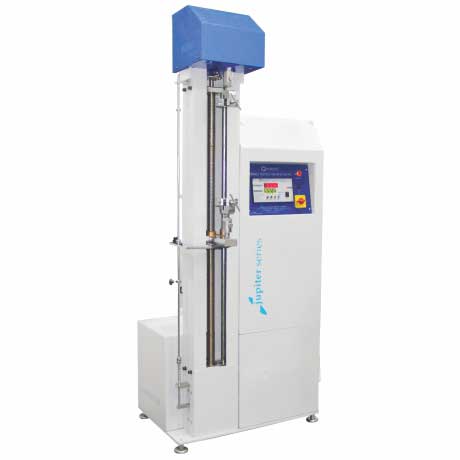Regardless of your product, this equipment is essential for assuring compliance with ASTM and ISO standards. It would be best if you refrained from purchasing a Universal Testing Machine that doesn't fit your unique requirements, whether you're upgrading in terms of quality or functionality or want to buy brand-new equipment.
Depending on your specific testing needs, you must consider several things before buying a universal testing machine. Here you can get the actual tips for choosing the best Universal tensile testing instrument.
1. ASTM & ISO needs
Finding out the standards necessary for the test material is one of the first and most important decisions when buying a UTM. ASTM and ISO set these standards. Since most standards include sections with the suggested or needed apparatus and fixturing, testing standards frequently play a significant role in the selection of testing equipment. Standards also outline the test's specifics, including preloads, speeds, and the separation between grips. Understanding the type of test the substance must pass is critical because these standards differ.
2. Material to be Tested:
A Universal Testing Machine can test a vast variety of materials. The correct testing machine for your purposes will depend on the type of material, its weight, and its size. Best machines can test multiple materials, including plastic, rubber, metal, and many more.
3. Maximum Load Capacity: The maximum load required to conduct a test is frequently used to determine which universal testing machines to use. Various machines are readily available, including tabletop, electromechanical, hydraulic, and others.
4. Test Types: Knowing the types of tests you plan to run is crucial before buying a universal testing machine. The equipment from the best place can run various tests, including tensile, compression, torsion, bend, and more.
5. One machine, all tests: Selecting the proper universal testing machine alone is insufficient. You must also critically consider its potential uses for a variety of materials in the future. For instance, you might require a tensile testing machine today but later decide you'd like to utilize it for bend or drop testing. Investing in a truly "universal" testing machine can eventually cut expenses by considering all present and future requirements.
Choose whether a fluid bath, an environmental chamber, or sample preparation tools will be helpful for your testing method. Environmental chambers or baths can be used to simulate real-world settings, while a range of cutting dies and tools may improve testing conditions.
Take into account all potential applications your universal testing device may need. In the future, your needs for materials testing may grow and include torsion, bend, peel, and fatigue testing, even though you may only need tension and compression capabilities right now. You can get an all-inclusive system and save money in the long run by considering every option that a universal testing machine might require. When you want to make the best things, then only the best instrument can help you to make them properly.
Lastly,
The motor, actuator, and drive used to outfit the Universal tensile testing instrument can be determined by the pace at which the materials testing system operates. This is a crucial distinction to make between static and dynamic fatigue assessments.





